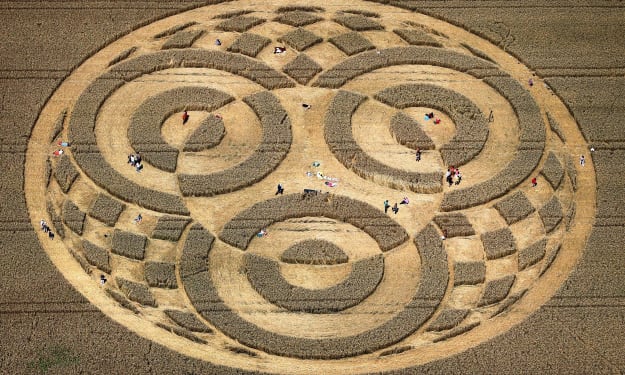The Glorious Legacy: Unveiling the History of the Olympic Games
The Olympic Games, often hailed as the world's most celebrated sporting event, hold a storied history that dates back thousands of years.
In the beginning...
The Olympic Games, which are frequently referred to as the most recognized sporting event that takes place anywhere in the globe, have a rich history that can be traced back thousands of years. This worldwide show has surpassed the constraints of time and space, bringing people from all over the world together in the spirit of friendly rivalry. In this essay, we look into the fascinating history of the Olympic Games, following their beginnings, evolution, and continued significance over the course of their long existence.
The Early Beginnings (between 776 BC and 394 AD):
The origins of the Olympic Games may be traced all the way back to ancient Greece, specifically to the city of Olympia, where they were originally held in 776 BC. The Greek god Zeus was honored with these early contests, the majority of which involved athletic competitions, and they were held in his honor. The ancient Olympics were held once every four years and attracted competitors from a wide variety of Greek city-states. These athletes participated in events such as the long jump, discus throwing, and running. Unbelievably, a cease-fire was called for the duration of these games, which not only ensured the safe passage of players and spectators but also laid the framework for the coexistence of athletes and fans at future international sporting events.
The Revival (during the latter half of the 19th century):
As a result of the decline of ancient Greece, the Olympic Games were put on hiatus for several centuries, yet their spirit lived on. Not until the later part of the 19th century were the Olympic Games revived and started being held again. In 1896, a French educator named Pierre de Coubertin established the International Olympic Committee (IOC) with the intention of rekindling this age-old custom. The first ever modern Olympic Games were held in Athens, Greece, and featured competition in 43 different events. A total of 280 athletes from 13 countries participated. This event marked the start of the modern era of the Olympic Games.
The 20th Century: A Time of Expanding Horizons
The Olympic Games quickly became more well-known, leading to an increase in the number of nations and sports that took part. In the year 1900, the first women's competitions were held, which was an important step toward achieving gender parity in the sporting world. The games expanded to incorporate winter sports over the course of several decades, which eventually led to the establishment of the Winter Olympics in 1924. The relay of the Olympic torch from Greece to the host city has become a symbol of both the coming together of people from all over the world and the everlasting spirit of the Olympic Games.
Both adversity and success have marked the 20th and 21st centuries.
The Olympic Games saw a mix of success and difficulty during the 20th century. The Olympic Games were not held during World Wars I and II, but they have since returned thanks to the establishment of the Paralympic Games, which offer disabled competitors the opportunity to demonstrate their skills. Although they were plagued by problems such as boycotts, political conflicts, and doping scandals, the Olympic Games managed to maintain their status as a symbol of worldwide solidarity despite these challenges.
The Games of the 21st Century (Modern Olympics):
The 21st century has seen the Olympics fully embrace both technological advancement and internationalization. The host towns have made significant investments in state-of-the-art infrastructure and facilities in order to provide comfortable accommodations for athletes and spectators. Additionally, the Games have adapted to modern difficulties, such as concerns regarding the environment and inclusivity, fostering sustainability and diversity in the process.
Concluding remarks:
The history of the Olympic Games is a tribute to the everlasting ability of sport to connect people from different cultures and different eras. This worldwide celebration of athletic skill and international togetherness has made an unmistakable effect on our globe, from its humble origins in ancient Greece to the splendor of the modern Olympics. Ancient Greece was the site of the Olympics' humble beginnings. As we go closer and closer to the next iteration of the Games, we are reminded of the enduring legacy that this extraordinary event has left behind, as well as its capacity to motivate and unite all of us.
About the Creator
Stephen Keith B. Labto
Keith's transition from computer engineer to passionate writer was unique. Keith's curiosity and imagination pushed him to try something new. He invites readers to explore knowledge's various and beautiful landscapes one word at a time.







Comments (1)
very interesting article, well done